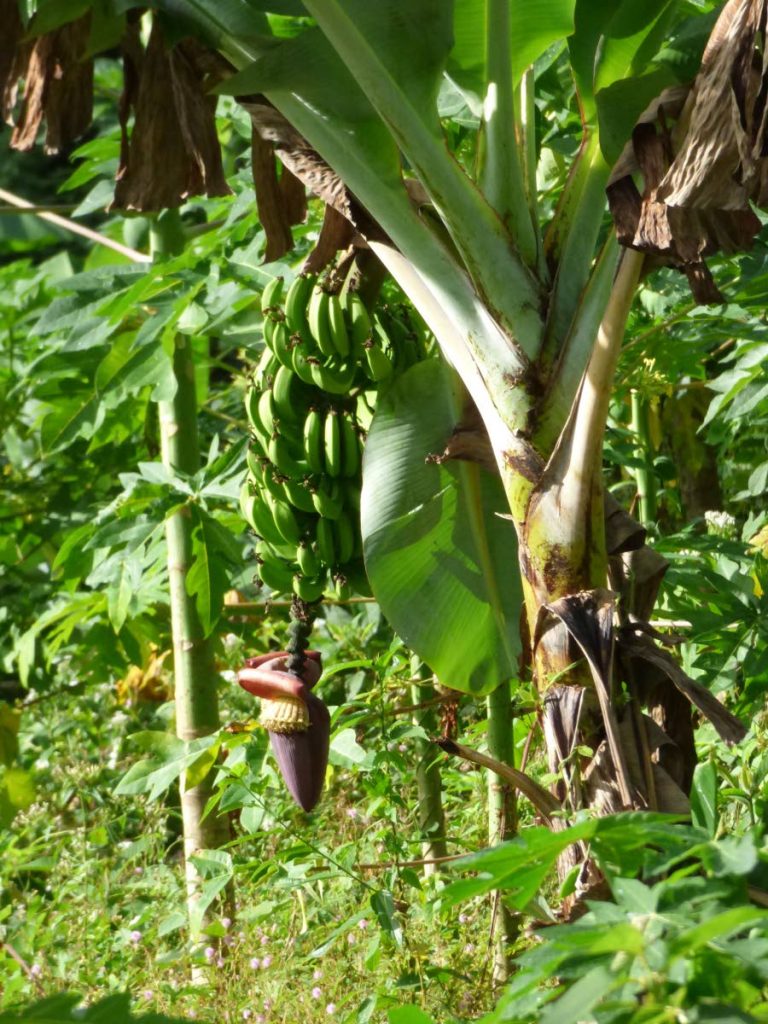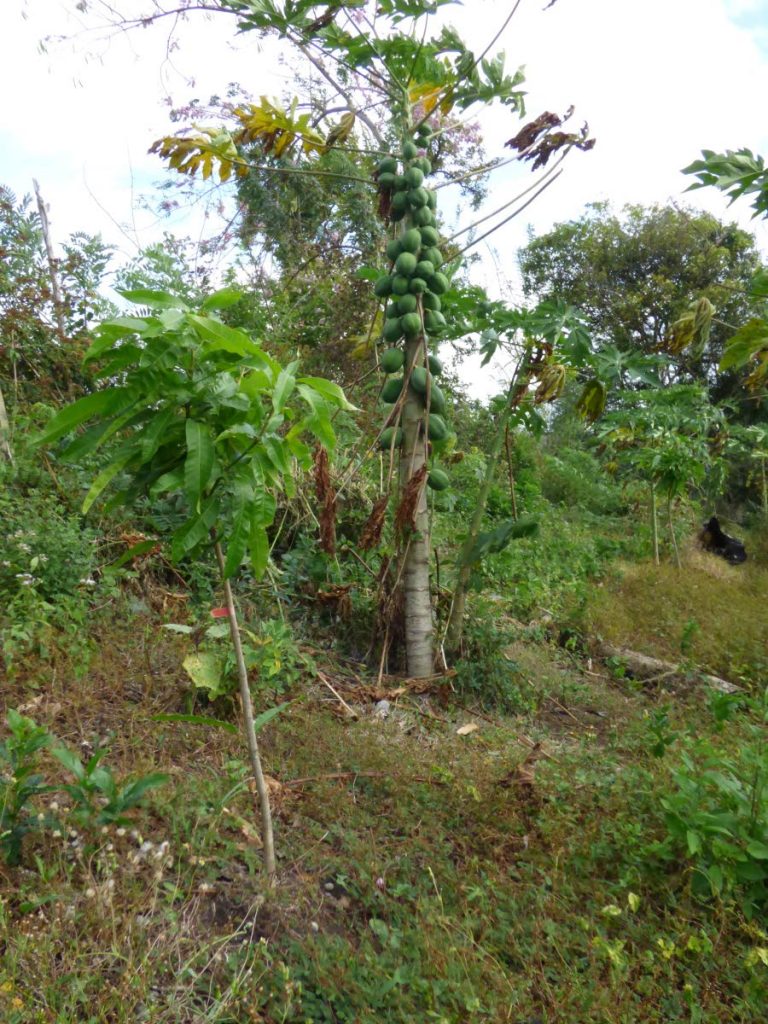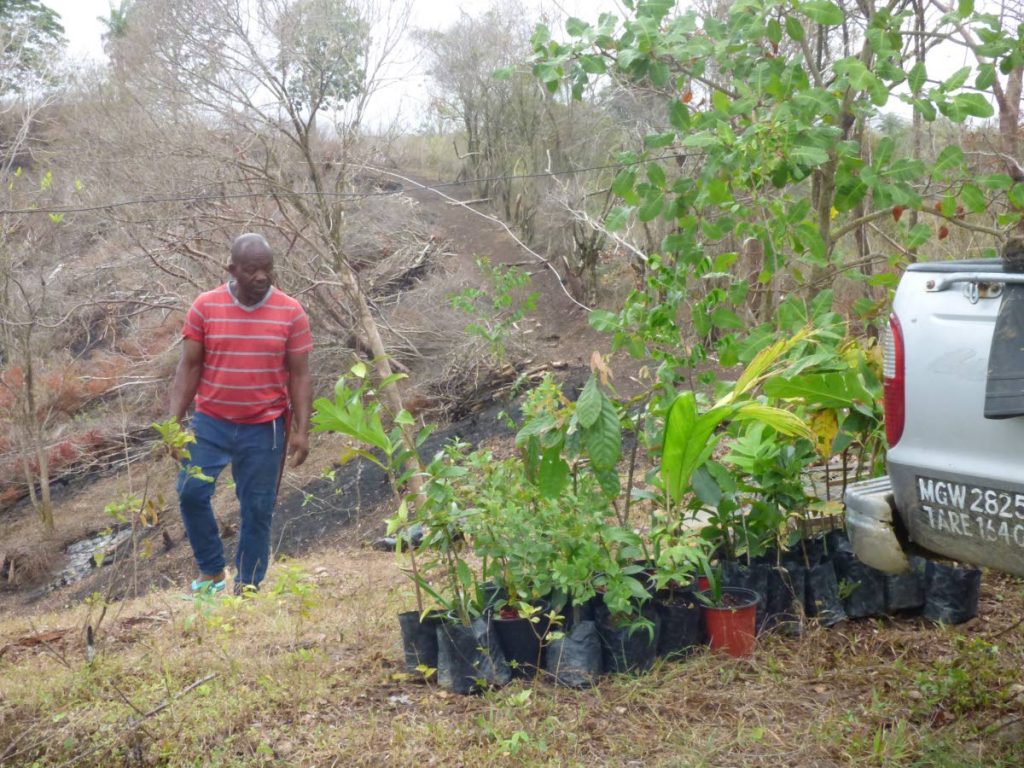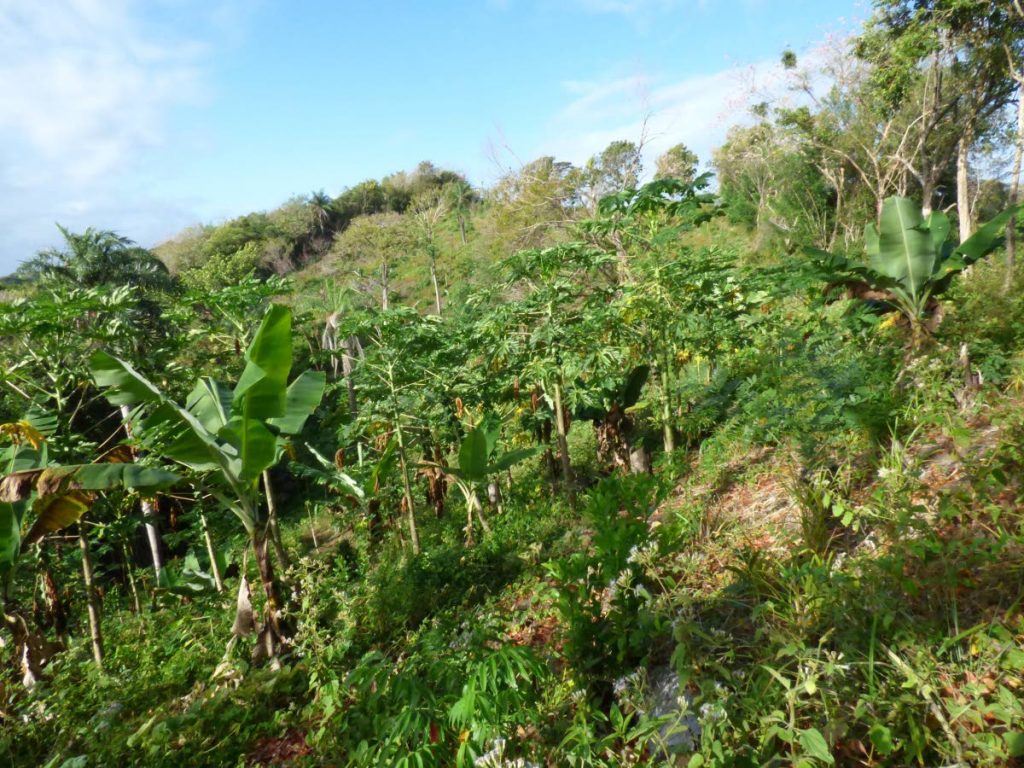Tobago wildlife park boosts food security with 'fruiting forest'

Before covid19, vendors in Tobago would often donate fruits and vegetables to help feed the animals at the Corbin Local Wildlife Park in Mason Hall.
Today, while the vendors still give generously, the amount of produce they donate has decreased because of how covid19 has affected their businesses.
So, in an effort to make up for the shortfall in food donations and increase the park’s food security, the park started planting a “fruiting forest” last July.
The park’s caretaker and tour guide, Michael Corbin, recently spoke to Newsday about the initiative.
“One of the main reasons we started the fruiting forest was because of covid19.
“A lot of the fruit stalls and so on that we used to get a lot of our fruits from, was not ordering as much…so we were also getting less from them,” said Corbin who noted the effects of the decreased donation were noticeable.
For example, Corbin said the park was not able to adequately maintain some of its feeding stations for birds.

As a result, some bird species which frequented the park, because of the feeding stations, stopped visiting altogether.
In more dire cases, the feeding regimes of some animals were also disrupted.

Sitting on approximately three acres of the park’s land, the fruiting forest has over 45 variety of crops including mangoes, papaya, five finger, pommecythere, oranges, portugals and different species of berries.
To grow the crops, the park is taking an organic approach and, as such, no chemicals are being used.
Calling on the public to help the park’s initiative, Corbin said, “Any donations we receive for the fruiting forest will go to us buying materials such as pipes.”
Though there is an irrigation system, which helps water the crops in the fruiting forest, Corbin said it doesn’t cover the entire area.
As such, the park’s caretakers are now focusing on expanding the system to help reduce some of the challenges experienced to water the crops.
Of the seedlings planted last July, the park was able to harvest, in December, watermelons and pumpkins which were the first set of crops harvested from the fruiting forest.

Corbin said the banana trees recently started to bear.
The fruiting forest has already attracted a variety of butterflies and it is the hope that the area can help increase the park’s biodiversity by attracting more animals.
For now, the park has no intentions of selling the harvest from the fruiting forest, but Corbin said they are open to the idea in the future.
People interested in donating to upkeep the park’s fruiting forest can contact the park through its website: tobagowildlife.com or call 327-4182.

Comments
"Tobago wildlife park boosts food security with ‘fruiting forest’"